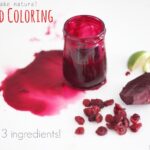Vitamin D, like other essential vitamins, is crucial for maintaining overall health, albeit in small quantities. Unlike many other vitamins, it’s not naturally abundant in a wide variety of foods, with exceptions like seafood, mushrooms, and egg yolks. However, our bodies have the remarkable ability to produce vitamin D when exposed to sunlight, earning it the nickname “the sunshine vitamin.” In today’s world, where indoor lifestyles are increasingly common, many individuals turn to supplements to ensure adequate vitamin D intake, often facing confusion about which type to choose.
Our bodies naturally produce vitamin D3, also known as cholecalciferol. When browsing the supplement aisle, you’ll encounter both D3 and D2 options. Vitamin D2, or ergocalciferol, is structurally similar to D3 and functions similarly within the body, although D3 is considered slightly more potent.
The primary distinction between D3 and D2 supplements lies in their origin. D3 is typically derived from animal sources, although it can also be sourced from lichen. Conversely, D2 is derived from plant sources. If you adhere to a vegan or vegetarian lifestyle, it’s essential to carefully examine product labels to ensure the supplement aligns with your dietary preferences.
Vitamin D is a fat-soluble vitamin, meaning it’s absorbed alongside fats. While it’s not mandatory to consume it with oily foods, incorporating it into a meal containing some fat can enhance absorption.
Why is Vitamin D3 Important?
Experts hold varying opinions regarding the optimal daily intake of vitamin D. In the United States, the Daily Value (DV) for vitamin D is currently set at 800 International Units (IU).
It’s crucial to avoid excessive vitamin D consumption. While vitamin D toxicity is rare, it can lead to serious health complications, including nausea, bone pain, and kidney stones.
Vitamin D deficiency can have significant repercussions for your health. Vitamin D plays a vital role in:
1. Promoting Bone Health
Vitamin D’s significance in bone health was first recognized when doctors were investigating rickets, a bone disorder primarily affecting children. While rickets is now uncommon, vitamin D remains essential for maintaining strong and healthy bones. It’s particularly crucial for postmenopausal women, who face an elevated risk of osteoporosis. Vitamin D is also employed in the treatment of osteomalacia, a more severe bone condition characterized by bone softening. Vitamin D facilitates the absorption of calcium, enabling the body to utilize a greater percentage of the calcium obtained from food.
2. Fortified Foods
In the United States, many food products, including soy milk, almond milk, and oat milk, are fortified with vitamin D. This means that vitamin D is added to these foods during processing to increase their nutritional value. While some foods naturally contain vitamin D, the levels are often relatively low. Food fortification helps to ensure that a wider range of individuals can obtain adequate amounts of this essential nutrient through their diet.
Natural Food Sources of Vitamin D3
While fortified foods can be a reliable source of vitamin D, it’s also important to be aware of foods that naturally contain this essential nutrient. Incorporating these foods into your diet can help you maintain healthy vitamin D levels.
Here are some excellent natural food sources of vitamin D3:
-
Fatty Fish: Salmon, tuna, mackerel, and swordfish are among the best dietary sources of vitamin D3. A 3-ounce serving of salmon can provide over 100% of the recommended daily value of vitamin D.
-
Cod Liver Oil: This supplement is an excellent source of vitamin D3 and omega-3 fatty acids. However, it’s important to consume it in moderation due to its high vitamin A content.
-
Egg Yolks: Egg yolks contain a moderate amount of vitamin D3. The vitamin D content of an egg yolk depends on the hen’s diet and exposure to sunlight.
-
Mushrooms: Certain types of mushrooms, particularly those exposed to ultraviolet (UV) light, can produce vitamin D2. While vitamin D2 is not as potent as vitamin D3, it can still contribute to your overall vitamin D intake.
Conclusion
Maintaining adequate vitamin D levels is essential for overall health and well-being. While sunlight exposure is a natural way to produce vitamin D, many individuals may need to rely on fortified foods, supplements, or natural food sources to meet their daily requirements. By incorporating a variety of vitamin D-rich foods into your diet and consulting with your healthcare provider about potential supplementation, you can ensure that you’re getting enough of this crucial nutrient.
